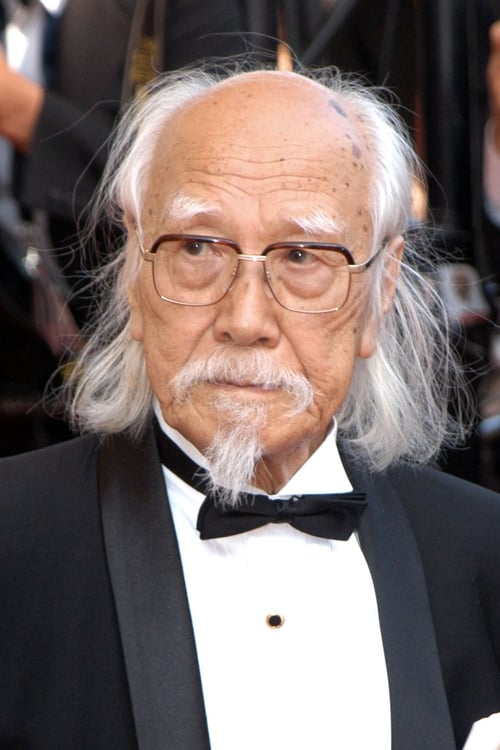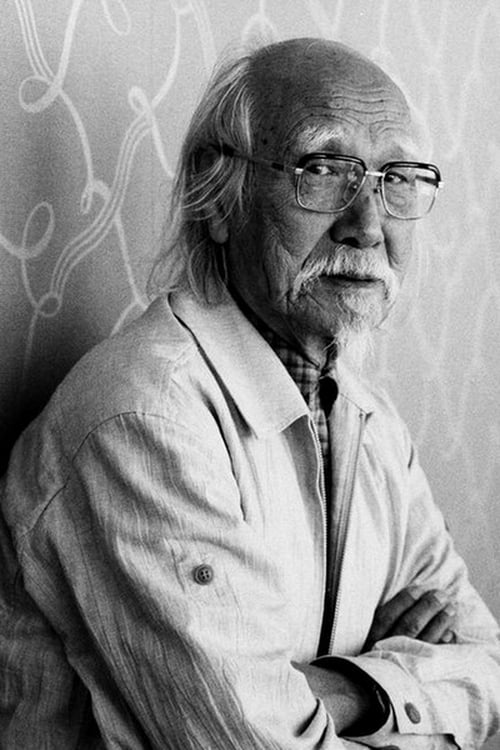
A tragic love story set in a mountain village in the Showa era, waiting for a fiancé who died in the war, but it is more than that. It breaks through the existing concept of a film with a beginning, middle, and end, and like Fellini or Godard... Hara Masato's cosmic film philosophy on the theme of "human history and media" unfolds like a symphony.

Gazen
Three tales of love told through wildly intoxicating, colorful stories. When platinum redhead Ovreneli Vreneligare was just a little boy, he fell in love in the park. Sharing a juice box with the stunningly gorgeous Milocrorze, he took her home to his cat, Verandola Gorgonzola, and made her his girlfriend until the fickle beauty abandoned him, and he covered the hole in his heart with a pot lid he found lying on the ground. This is only the beginning of his story but it’s not the end of his heartbreak. MILOCRORZE: A LOVE STORY is a candy-flavored anthology of hopeless l’amour, and it has many victims.

Recently appointed dean at a film school, Kimuro Hajime develops a special concern for one of his students, Daisuke. The brash, headstrong young man is fixated on with the Second World War. He feels a sense of frustration at the irrational sacrifice of young people's lives during the war six decades earlier. Daisuke finds that he can vent his frustrations to Kimuro, who experienced the war firsthand. Kimuro's wife, Emiko, is also troubled by memories of the war. She lost a loved one in the war and has never gotten over it. And Kimuro himself also has something from the past that he has yet to face. He believes that the burden of his unresolved past will eventually be the death of him. When Daisuke's neurosis causes him to quit school, life changes for all three of them.

A baby, John, who was abandoned in the church with a horse-headed koto on his side. His grandfather was once a Morin Khuur player and died in the atomic bombing of Nagasaki. The brilliantly colored images have an avant-garde charm while hiding the sadness of the war, and will grab the viewer's heart.

Ryuun Naito
Jun, a 16-year-old teen, refuses to stand while the national anthem is being played at his graduation ceremony. This event will totally change his life, as he involuntarily becomes the new hero of a rebel anti-system youth. Singer Muy's pop music and his friend, Nozomi, with whom he shares his sadness and hatred for the society that surrounds them, help him bear his terrible loneliness.

Works commemorating the 70th anniversary of the founding of Japan mapping Supervision Association

Made for in 2005, this video interview features director Seijun Suzuki and production designer Takeo Kimura. These longtime collaborators discuss the making of GATE OF FLESH.
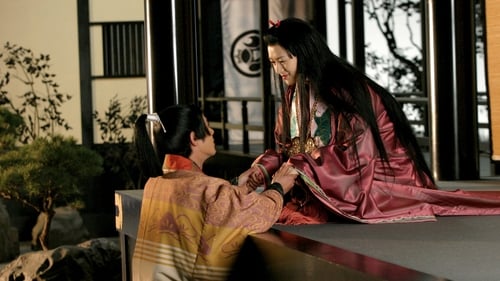
Executive Producer
A vida do príncipe Amechiyo está em risco depois que um profeta ou oráculo anuncia a seu pai, o lorde Azuchi Momoyama, que ele deixará de ser o mais belo entre todos os seres do universo. Lorde Azuchi ordena então que um monge vá até a Montanha Sagrada e mate o príncipe. Este é salvo por uma horda de guaxinins, que atacam o monge na floresta. A Princesa Guaxinim, em sua forma humana, encontra Amechiyo adormecido na floresta e cuida dele até que ele recobre os sentidos. No caminho para o Palácio Guaxinim, a princesa fere seu pé numa armadilha, e agora é Amechiyo que salva sua vida. Os dois se apaixonam. Quando chegam ao Palácio Guaxinim, os nobres rejeitam a união, pois é tabu que humanos e guaxinins possam se amar. Enquanto isso, lorde Azuchi descobre o paradeiro do filho e declara guerra aos reino guaxinim. Em seu último filme, Suzuki mergulha na fantasia do conto de fadas e da comédia musical, criando uma apoteose de cor e movimento.

Director
A vida do príncipe Amechiyo está em risco depois que um profeta ou oráculo anuncia a seu pai, o lorde Azuchi Momoyama, que ele deixará de ser o mais belo entre todos os seres do universo. Lorde Azuchi ordena então que um monge vá até a Montanha Sagrada e mate o príncipe. Este é salvo por uma horda de guaxinins, que atacam o monge na floresta. A Princesa Guaxinim, em sua forma humana, encontra Amechiyo adormecido na floresta e cuida dele até que ele recobre os sentidos. No caminho para o Palácio Guaxinim, a princesa fere seu pé numa armadilha, e agora é Amechiyo que salva sua vida. Os dois se apaixonam. Quando chegam ao Palácio Guaxinim, os nobres rejeitam a união, pois é tabu que humanos e guaxinins possam se amar. Enquanto isso, lorde Azuchi descobre o paradeiro do filho e declara guerra aos reino guaxinim. Em seu último filme, Suzuki mergulha na fantasia do conto de fadas e da comédia musical, criando uma apoteose de cor e movimento.

When a man who as a student wanted to burn down his school meets a man years later, his new friend falls in love with the former female class-mate who herself is in love with the would-be arsonist.
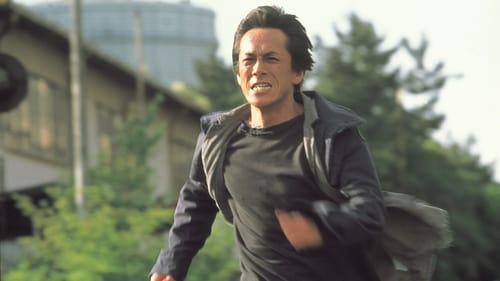
Old Man's Ghost
Existential study on a misplaced workers and ex-prisoner who moves through the city and his influence on other characters' lives.
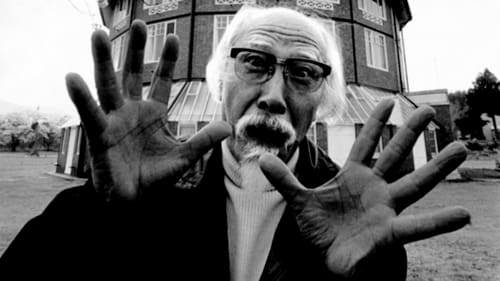
Himself - Director / Screenwriter
In the sixties, director and screenwriter Seijun Suzuki (1923-2017) was the great innovator of Japanese cinema. Extremely creative and eccentric, his narrative world is strongly influenced by Kabuki theater. His testimony crosses with that of his collaborator and close friend, artistic director and screenwriter Takeo Kimura (1918–2010). Between the two of them, they remember how they made their great masterpieces about the Yakuza underworld for the Nikkatsu film company.
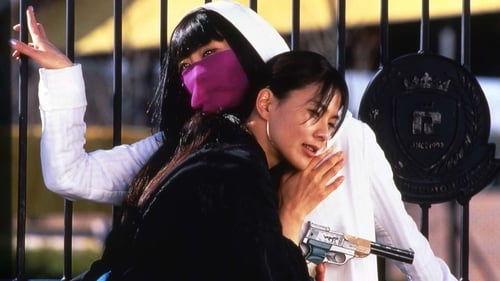
Director
Miyuki Minazuki, apelidada de “Gata de Rua,” é a “Número 3” no Sindicato de Assassinos. Ela mora com sua avó, e sua arma preferida é uma pistola. Gata de Rua recebe suas ordens de Sayoko Uekyo, uma mulher enigmática de vestido branco. Ela parece confortável com sua posição no ranking, mas a rivalidade se intensifica quando o misterioso “Número 1,” apelidado de “100 Olhos,” começa a atacar os outros assassinos que estão no topo da hierarquia. Quando Sayoko informa Gata de Rua de que 100 Olhos agora é um alvo para o Sindicato, surge a oportunidade para matá-lo e assumir o primeiro lugar. Espécie de remake e continuação de A Marca do Assassino (Goro Hanada, protagonista em 1967, é agora “Número 0,” um conselheiro de Gata de Rua), o filme aplica o estilo tardio de Suzuki à matriz dos filmes de gângster que ele fazia na Nikkatsu, resultando num painel delirante de cores e ritmos, um balé ou uma ópera de sedução e morte.

A humanity drama set in Asakusa. Natsumi, a third-year high school student, moved to Tokyo when his grandmother died. Haruka, the flower-shaped stripper who is the mother, cannot hide the dreadfulness from the sudden appearance of her daughter. Living together is always addicted, Natsumi refuses her mother. On the other hand, Haruka is faced with a lover's debt problem.

Young female embalmer Miyako is called in to restore the body of a young man who has committed suicide, before the funeral. While performing the embalming process she finds herself pricks by a needle buried deep in the boy’s flesh where it should not be. During the night the head is removed from the body and stolen, Miyako begins a desperate search for it so she can finish her work. Miyako search finds her encountering organ harvesting, religious cults, incest, psychopathic schizophrenics as well as some very dark secrets from here own past.

A comedy about the uproar in a yakuza office, before the dissolution ceremony the next day. The day before the dissolution of the Yamamuro group, it is reported that the leader of the hostile organization was assassinated by someone.
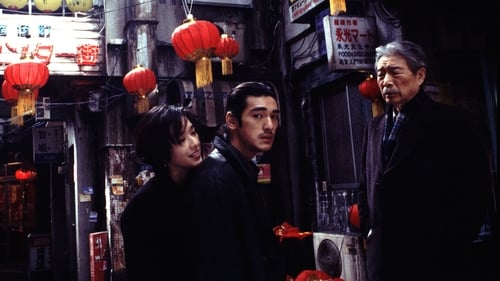
Ye Xiaodan
Kenichi is a half-Japanese, half-Chinese man of the underworld. You can sell him anything except children's organs. His domain is in Kabukicho, a gangland controlled by various Shanghai gangs intent on taking control. His former partner-in-crime, Fu-Chun, is rumored to have returned to Kabukicho, having fled years earlier after killing the number two of gangland boss, Yuan. Yuan wants to get even and attempts to do so by using Kenichi.
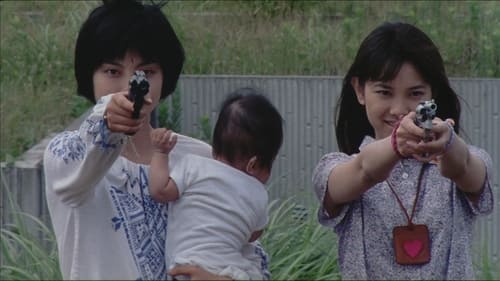
Old Man
Fu and Suzu are two pretty anarchist girls who decide to take to the road. They set off on a journey to visit the tomb of a small pig by name Pupu. On the way, they meet Suzu's ex-lover, a gay couple, and a golf player; always getting in trouble. But whenever trouble comes, 'Trunk Man' the hero appears to save them.

A story about the friendship of the sons of two political rivals.

Grandpa
An exciting 'psychic movie' starring Kanako Enomoto, adapted from the manga series by Yukio Tamai. Police detectives searching for clues related to a serial murder case seek out help from high schooler Yurika, who possesses latent split personality psychic abilities. The mystery deepens once Yurika is brought face-to-face with the crime scenes.

A difficult request brought to the unlicensed genius surgeon Black Jack. It was supposed to be born as twins, but it was an operation to separate what had been taken into another body. The second in a series depicting the episode of the birth of Pinoko.

When an artist dies, the official cause of death is judged to be a stroke, but his daughter suspects foul play. She recruits the services of an assassin, who by chance encounters an old friend...
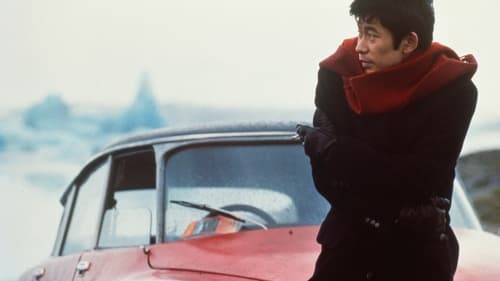
Hirata's Grandfather
A Japanese businessman travels to Iceland and has a series of misadventures while venturing to a remote area to perform a traditional burial ritual where his parents died several years back.
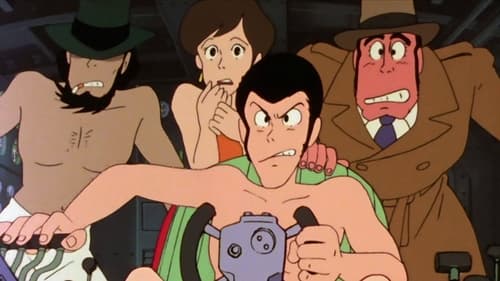
Supervising Art Director
Lupin III: Greatest Capers é uma compilação de dois episódios da segunda temporada da serie televisiva Lupin III que foi lançada em vídeo pela Streamline Pictures.
Ambos os episódios foram dirigidos por Hayao Miyazaki (que já havia dirigido o segundo filme de Lupin III, O Castelo de Cagliostro) sob o pseudônimo de Teruki Tsutomu; 145: Albatross, Asas da Morte (Wings of Death - Albatross) e 155: Até Sempre Querido Lupin (Farewell My Beloved Lupin).
Os episódios foram produzidos pela Studio Telecom, que produziu 11 dos 155 episódios da segunda temporada de Lupin III, incluindo os dois episódios dirigidos por Hayao Miyazaki.

Director
An omnibus featuring the work of three different filmmakers.

Writer
A semi-autobiographical film about a young man from Tokyo who moves to Hirosaki in the early Shōwa era. A straight-to-video production made for the Hirosaki Senior High School Alumni Association that also incorporates footage from contemporary Hirosaki, and features cameos by regular Suzuki performers like Tamagawa Isao and Nogawa Yumiko.

Director
A semi-autobiographical film about a young man from Tokyo who moves to Hirosaki in the early Shōwa era. A straight-to-video production made for the Hirosaki Senior High School Alumni Association that also incorporates footage from contemporary Hirosaki, and features cameos by regular Suzuki performers like Tamagawa Isao and Nogawa Yumiko.
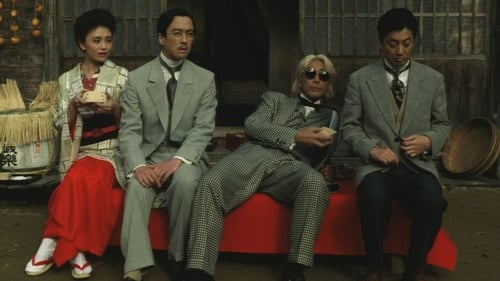
Director
A vida ficcionalizada do pintor e poeta Yumeji Takehisa (1884-1934). Yumeji está em Kanazawa, esperando a chegada de sua amante Hikono, quando se depara com a bela viúva Tomoyo, que perambula pelas cercanias de um lago procurando o corpo de seu marido Wakiya, supostamente assassinado por um bandido. O pintor fica impressionado com Tomoyo e ajuda a viúva em sua busca. Em seguida, eles se tornam amantes. A trama fica mais complexa quando aparecem Matsu, o suposto bandido assassino, e a modelo Oyo, também amante de Yumeji. Até que o próprio Wakiya reaparece, sem que saibamos tratar-se de um fantasma ou de uma presença real. Último volume da “trilogia Taisho,” o filme intensifica os procedimentos oníricos e alucinatórios dos filmes anteriores, chamando mais a atenção para os elementos simbólicos e as atmosferas do que para a trama.

Based on the comic book by Tatsuo Kanai

Vet
Based on a true story. Shiro, a dog who lives in an inn on Akajima in Okinawa, swims to the opposite shore on Zamami to see his love, a dog named Marilyn. Shiro is portrayed by the real-life Shiro.
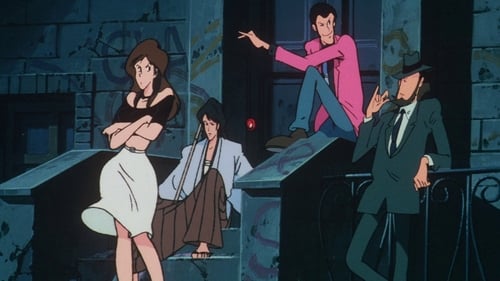
Director
Na cidade de Nova York, várias tábuas de pedra foram desenterradas que contam uma história sobre o ouro da Babilônia. Duas famílias da máfia estão atrás dele, assim como o próprio Lupin III. Uma velha bêbada chamada Rosetta parece saber muito sobre este tesouro do que aparenta. Enquanto Zenigata fez um grupo de parceiras que vão algemar Lupin o 3º, a corrida pelo ouro de Babel já começou.

Director
Umiemon is a naniwa-bushi singer who travels with his wife to the United States in hopes of achieving fame and fortune.

Director
A single mother is being investigated into the death of her ex-husband, which brings to the fore the obscure details of her past.
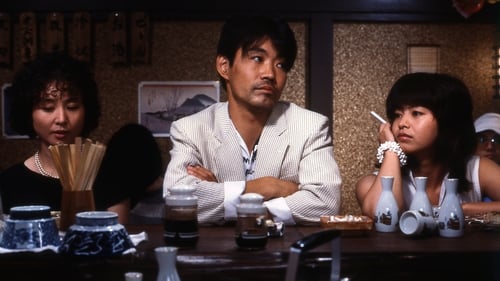
Man in Bar(飲み屋の男)
Kato is a small time TV producer. He has a wife Masako, and a young son Taro. Kato also has a friend Yamazaki who he knew since college. Yamazaki has a girl friend Riko who lives with her younger sister Yuko who's an actress. Yamazaki is a lyric writer/womanizer and he starts to have an affair with Masako, but he's still going out with Riko.

Screenplay
The Oedo Investigative Network investigates a mysterious fire one evening. Could it be connected to a mysterious man in an eyepatch who just came into town?

Director
The Oedo Investigative Network investigates a mysterious fire one evening. Could it be connected to a mysterious man in an eyepatch who just came into town?

Director
A man looking to transplant cherry blossoms along the countryside encounters a blind woman who accompanies him for the journey.
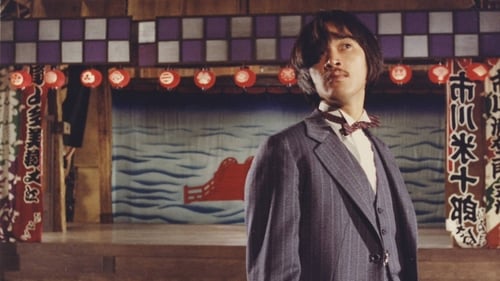
Director
Tóquio, 1926. Shunko Matsuzaki é um dramaturgo de teatro shinpa (moderno), e tem como mecenas o poderoso Tamawaki. Um dia, ele se depara com a bela Shinako numa ponte. Ela pede que Matsuzaki a acompanhe até o hospital para fazer uma visita a uma mulher moribunda. Ela deseja sua companhia pois tem medo de encontrar uma senhora vendedora de fisális, fruta que supostamente contém as almas das mulheres. Matsuzaki recusa, mas Shinako retorna em outras aparições, e torna-se sua amante. Em seguida, ela desaparece. Tempos depois, Matsuzaki descobre que Shinako pode ser o fantasma de uma antiga esposa de Tamawaki. Depois de receber uma carta de Shinako, Matsuzaki viaja para Kanazawa a fim de encontrá-la. No trem, ele encontra Tamawaki, que diz que está viajando para presenciar um suicídio por amor. Segundo filme da “trilogia Taisho,” que segue o mesmo estilo alucinatório do primeiro.

A light-hearted portrayal of three strange days in the life of a high school girl who is told she will die in three days. The best entertainment of student films, which became a legend. Many students aspired to film after seeing this film and many others gave up directing at the time.

Idea
A member of the jieitai ("Self-Defense Force"; i.e. Japanese military) is on leave and finds a woman giving birth in a graveyard in the former Yoshiwara district. He takes her to an inn to gove birth, and stays on a few days as she recovers, but becomes fascinated with the strange people he meets there, particularly the owner, who visits a house in his courtyard every day to talk and give food to his mother. He says she is very sick and can't leave bed, but no one else has ever been inside or seen her.

Director
Based on a mystery by Taiwanese-Japanese author Chin Shun-shin. After two elderly men in Yokohama quarrel over a Yang dynasty artifact, one of the men turns up dead with mysterious claw marks across his face. A detective takes up the case, and uncovers secrets dating back to war crimes committed during Japan’s invasion of China in WWII.
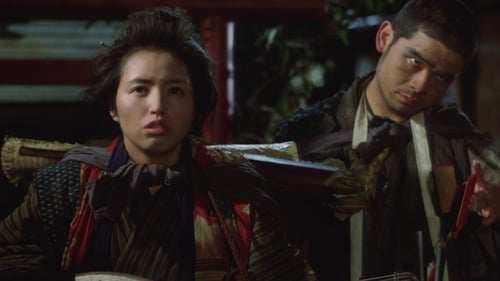
Director
Aochi, um professor universitário de alemão, encontra com seu antigo colega Nakasago quando viaja de férias para um vilarejo à beira-mar. Nakasago vive como nômade e é perseguido por um grupo local, acusado de ter seduzido e assassinado a mulher de um pescador. Depois que Aochi resolve a situação do amigo com a polícia, os dois jantam e conversam sobre a vida, acompanhados pela gueixa Koine. Seis meses depois, Aochi volta para visitar o amigo e descobre que ele está casado com Sono, uma mulher incrivelmente parecida com Koine. Repentinamente, Nakasago foge com Koine, abandonando Sono, que está grávida. Mas tudo pode ser sonho, delírio ou realidade. Acompanhando a trama, a peça musical “Zigeunerweisen” (1878), de Pablo de Sarasate, toca com insistência. Primeiro filme da “trilogia de Taisho,” que faz referência ao Japão dos anos 1910-1920, foi vencedor de quatro prêmios da Academia Japonesa em 1981, incluindo os de Melhor Filme e Melhor Diretor.

Director
A police detective tries to investigate the mystery of a victim who was shot in the head, but no bullet was found.

Director
A model must cope with the stress of fame after a marketing executive transforms her into a sports celebrity.

Himself
Three cinephile university students have a go at making their own Super-8 film.

Director
In post-war Japan, a publisher goes to visit her former teacher for help on a modern translation of a legend about a mummified Buddhist monk who was revived and who, centuries later, turned into a sex demon who terrorized a village in pre-modern Japan.

Director
A delirious and psychedelic TV short by Suzuki.
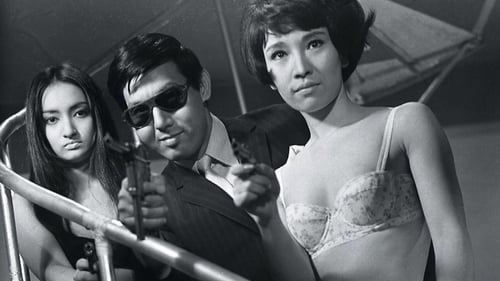
Screenplay
Ao fim de quase quarenta filmes como realizador em pouco mais de dez anos de trabalho, Seijun Suzuki foi despedido da Nikkatsu, lendária produtora japonesa. A causa, este "Koroshi no Rakuin", considerado pela crítica a sua obra prima, mas visto como incompreensível e inaceitável pelo presidente da companhia, Kyusaku Hori. O filme valeu-lhe um circense processo judicial pela luta dos direitos das suas obras. Ao fim de três anos de litígio, Suzuki, mais do que uma vitória merecida, conquistou o estatuto de cineasta de culto no Japão e um despertar das atenções a Ocidente. A década seguinte seria de exílio em trabalhos menores para a televisão.

Director
Ao fim de quase quarenta filmes como realizador em pouco mais de dez anos de trabalho, Seijun Suzuki foi despedido da Nikkatsu, lendária produtora japonesa. A causa, este "Koroshi no Rakuin", considerado pela crítica a sua obra prima, mas visto como incompreensível e inaceitável pelo presidente da companhia, Kyusaku Hori. O filme valeu-lhe um circense processo judicial pela luta dos direitos das suas obras. Ao fim de três anos de litígio, Suzuki, mais do que uma vitória merecida, conquistou o estatuto de cineasta de culto no Japão e um despertar das atenções a Ocidente. A década seguinte seria de exílio em trabalhos menores para a televisão.
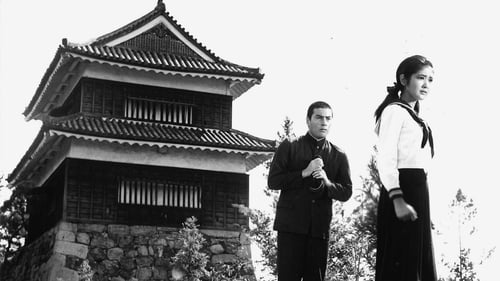
Director
Kiroku boards with a Roman Catholic family and falls for the daughter Michiko. He ignores his feelings, joins a gang, gets in fights and, eventually, becomes involved with the radical Kita Ikki group.
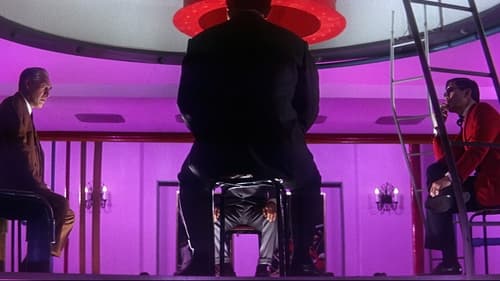
Director
Braço direito a Yakusa resolve abandonar a carreira criminosa com seu chefe, mas uma gangue rival não deixará que isso aconteça tão facilmente.
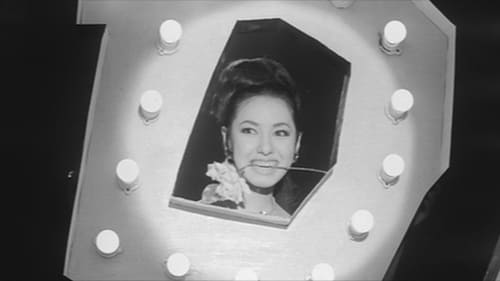
Director
Like a girl runaway, Tsuyu moves to Osaka to work as a bar hostess. She meets the owner of a model school, Yoko, and seriously thinks about becoming a fashion model. Yoko tells her that she can move in to Yoko’s house to take lessons, while making a living at the same time.
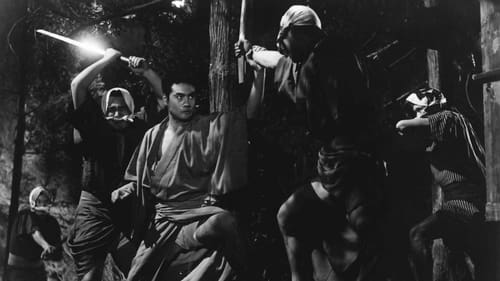
Director
‘Tattooed Life' begins with a parasol wielding Yakuza assassin attacking a rickshaw. It almost looks like feudal Japan until somebody pulls a gun and we're reminded that it's the 20th century. Post-shooting, the assassin delivers his bounty to his brother (to pay for his art school education) before getting ambushed in one of the few rickshaw-jacking incidents in film history, and being rescued by his art-student brother. In the aftermath, one brother is marked for death by the Yakuza, and the other brother won't go to art school with blood on his hands, so they decide the perfect way to deal with such hardships is to become fugitive construction workers in northern Japan . And why not?

Director
A young man with a strong sense of justice is torn between two girls: the flighty Taneko and the serious Suzuko. With wisdom, courage and honor in a Japanese spirit of manliness he wins the day.

Director
Uma prostitua é humilhada por um alto oficial do exército japonês. Ela resolve se vingar se relacionando com seu assistente, para manchar a honra do superior hierárquico.
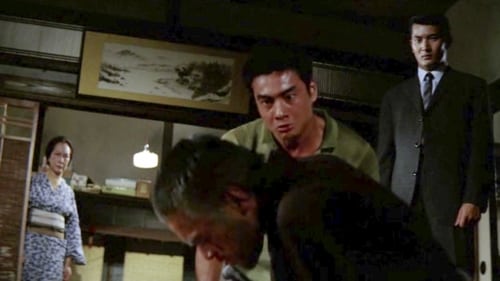
Director
Two brothers seek revenge on the yakuza responsible for the death of their father.

Director
Após a segunda guerra, nas favelas de Tóquio, algumas prostitutas adotam um código estrito de conduta.
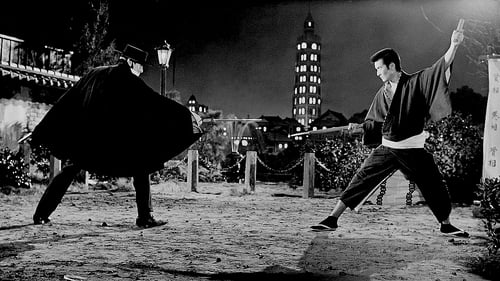
Director
A young yakuza in love with the girl who's to marry his clan oyabun, kidnaps the girl before fleeing with her. In Tokyo, he hides under the identity of a worker while the young woman becomes a waitress in a restaurant.

Director
Handsome young Katsuta tries to follow the yakuza code, but even his boss doesn't believe in it. Diamond Fuyu is less ethical, and allows the idiotic Tetsu to trick a schoolgirl he fancies, Hanako, into a type of bonded prostitution. Because of gang conflict, the Izu family (to whom Katsuta belongs) has their last gambling den taken over, and he seeks revenge. This brings him back into contact with a former lover who is also a card trickster - she is also Diamond Fuyu's sister, and is now married to Okaru-Hachi, who has mastered a clever card cheating trick called Okaru, which involves the deft use of mirrors.

Director
Based on the loosely autobiographical novel of the same name by Toko Kon. Ken Yamanouchi stars as Togo Konno, the titular bastard.

Director
When a mysterious stranger muscles into two rival yakuza gangs, Tokyo's underworld explodes with violence.
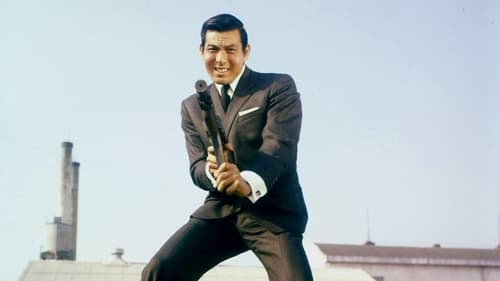
Director
Tajima is a private detective in charge of his own company, Detective Bureau 2-3. When warring criminal gangs go overboard by robbing U.S. military munitions, Tajima steps in to stop what the cops can't.

Director
An unofficial sequel to Million Dollar Match (1961) which also starred Koji Wada as a young energetic boxer. This story deals more with betting action surrounding a boxing match, concentrating mostly on the high-powered Yakuza gambling dens.
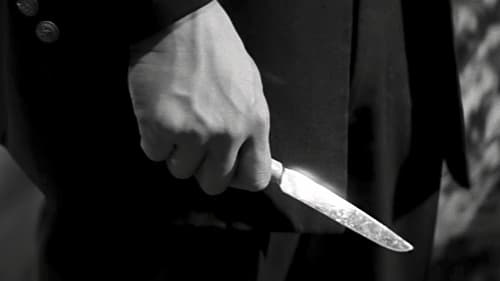
Director
A high-school vigilante protects his community from the extortions of mobsters from a neighbouring city.

Director
A boxing melodrama. Two friends become boxers and begin training for the championship. These two boys eventually face each other in the ring.

Director
Nikkatsu finally responds to Suzuki's growing discontentment by giving him a bigger budget and a better script. This episodic collection of "real coast guard action stories" was the perfect vehicle for Koji Wada. Whatever negative press he had received for Tokyo Knights was quickly forgotten. He became the new "teen star." And Suzuki: "the director to watch."
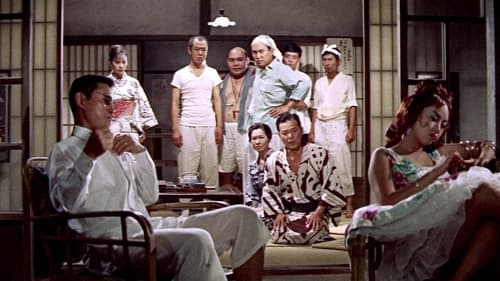
Director
On summer vacation, university student Shintaro gets involved with a magic troupe as they travel from festival to festival.
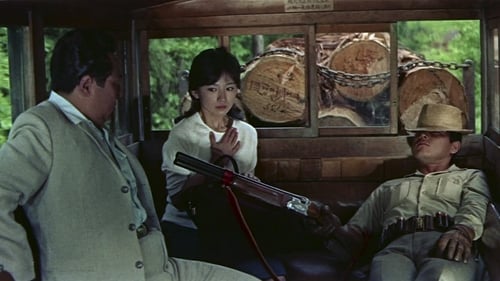
Director
Ryoji, a wanderer, arrives in a remote mountain town, carrying a shotgun and claiming to be a hunter. He quickly becomes embroiled in a web of trouble surrounding the town's mill.
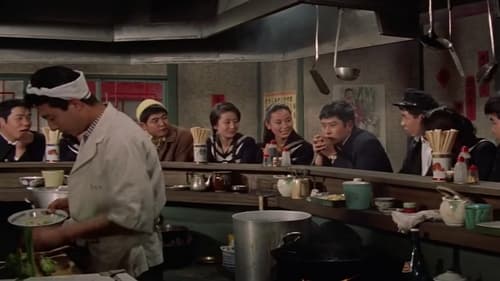
Director
Wada Kōji is a chivalrous young man who leads a group of youths that take on a yakuza boss.
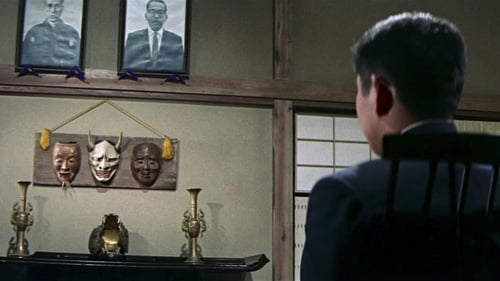
Director
A college student takes over the family business in the field of organised crime.

Director
This rarely seen gem from master Suzuki casts teenage heartthrob Koji Wada as a young misfit who suddenly finds himself the unwitting pawn in an escalating family feud that ultimately leads to tragedy. Lean, mean, and stylish as always, this tale of youth-gone-wild is both vibrant and touching. Suzuki contrasts tranquil glimpses of traditional regional life with the emergence of the new rock 'n' roll youth culture and the greed and seething cynicism of encroaching Westernism. Also released under the title "Go To Hell, Hoodlums!", this is a melodrama as colorful, shocking, and exhilarating as one would come to expect from Japan's master filmmaker.
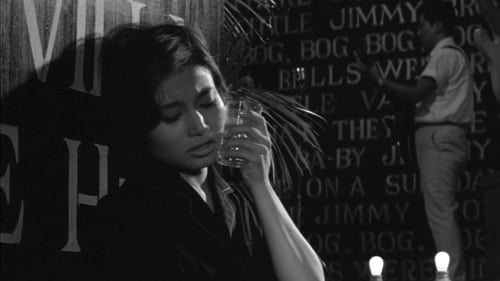
Director
Everything goes wrong when Jiro tries to break up his mother's relationship with a business man.
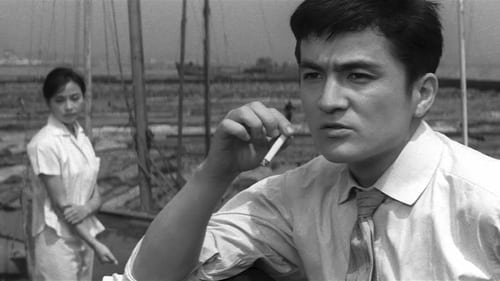
Director
Katiri is a reporter so ambitiously amoral that he’ll sell out anyone—including his partner and the drug dealer he’s sleeping with—to get a scoop. But what happens when an even more ruthless female gang boss kidnaps his sister?
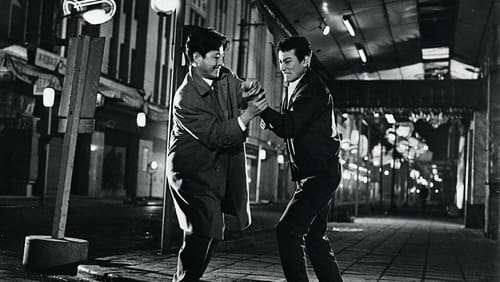
Director
When a middle aged salaryman is unknowingly used by drug traffickers he is dishonored and fires back at the Yakuza bosses, with destructive consequences.
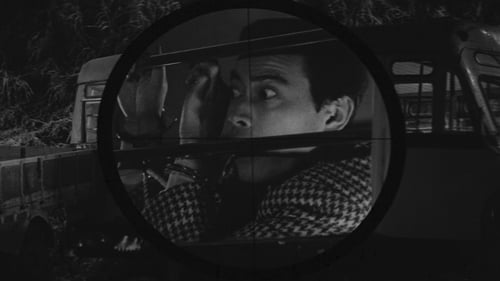
Director
A sharpshooter kills two prisoners in a police van at night. The guard on the van is suspended for six months; he's Tamon, an upright, modest man. He begins his own investigation into the murders. Who were the victims, who are their relatives and girlfriends, who else was on the van that night? As he doggedly investigates, others die, coincidences occur, and several leads take him to the Hamaju Agency, which may be supplying call girls. Its owner is in jail, his daughter, the enigmatic Yuko, keeps turning up where Tamon goes. Tamon believes he can awaken good in people, but has he met his match? Will he solve the murders or be the next victim? And who is Akiba?

Writer
The story deals with a juvenile delinquent gang surviving through petty thievery. However, everything gets screwed up when they accidentally steal big bucks from the Yakuza.

Director
The story deals with a juvenile delinquent gang surviving through petty thievery. However, everything gets screwed up when they accidentally steal big bucks from the Yakuza.

Director
A jazz bandleader, falsely accused of murdering his girlfriend, tries to stay one step ahead of the police as he dives into Tokyo's sin-city in search of the real killer in this dark and beautiful noir from master Seijun Suzuki.

Director
A nightclub manager is in love with his pianist. However, she has a ranger boyfriend who's been permanently stationed in the mountain wilderness. Their only communication is by letter. As time passes the correspondence slows to a trickle. Then nothing. The manager persuades the girl to visit the boy. She does, but she's totally unprepared for her bizarre discovery.
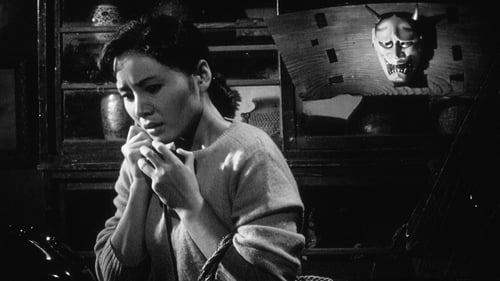
Director
Asako, a former telephone operator once heard the voice of a murder suspect which has continued to haunt her. Years later her husband invites his boss, Hamazaki, over for dinner and she realises his voice is suspiciously like that of the killer. Before she can investigate further, Hamazaki is found dead and her husband becomes the prime suspect.

Director
A delinquent young man (Kobayashi Akira) from a wealthy family decides to get in on a blackmailing scheme targeting his young stepmother (Watanabe Misako). However, he doesn't realize that his fellow blackmailers have their eyes on his girlfriend next.
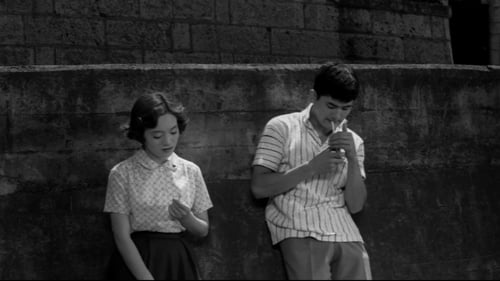
Director
Nobuo is a hot-headed hoodlum fresh out of reform school who struggles to make a clean break with his tearaway past.
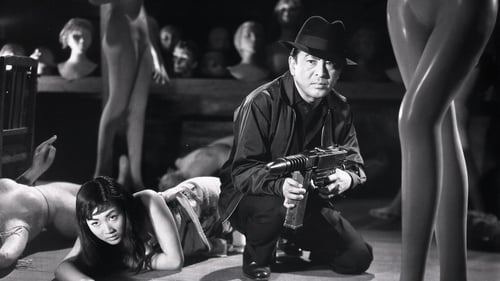
Director
The moment he's released from prison, the honorable gangster Miyamoto recovers the stolen diamonds he had stashed before getting pinched. When he returns to his haunt to make good by friend who took a bullet for him, he is diverted by the greedy boss Oyane and his insatiable taste for Miyamoto's precious stones. Replete with film noir style, "Underworld Beauty" is one of Suzuki's best nods to the American gangster genre.

Director
A Tokyo newspaper reporter goes after the Japanese king of cocaine trafficking but he's tricked by a woman who works for the gangster and gets framed for a murder he didn't commit.

Director
A bus making its precarious way across a winding mountain road picks up some unwelcome passengers.

Director

Director
A yakuza boss and his right-hand, Hawasaki, escape from prison. the film concentrates on their relationship, emphasizing loyalty and thier eventual betrayal, enroute they get involved in money trafficking, a cop killing and horse racing scams before the inevitable tragic ending. A patch-work production.

Director
Um conto de aventura romântica sobre um jovem que trabalha em um navio baleeiro e seu amor por uma paixão da infância.

Screenplay
Ippei, a bored private detective hears from his assistant Hideko an interesting story that General Semyonov who has been exiled to Japan buried his gold bullion somewhere.

Director
A sailor tries to help his younger brother, a horse-racing jockey, escape from the yakuza after double crossing them in a fixing scam. Seijun Suzuki's directorial debut.

Assistant Director
Private Detective Ippei Shizuno faces off against a serial killer and a wealthy woman's society who runs an illegal gun trade.

Screenplay
Private Detective Ippei Shizuno faces off against a serial killer and a wealthy woman's society who runs an illegal gun trade.

Assistant Director
A remake of High Noon (1952) as a Japanese jidai-geki sword-fighting movie.

Screenplay
A remake of High Noon (1952) as a Japanese jidai-geki sword-fighting movie.

Assistant Director
A reporter Takuo, who is sleeping in the newspaper room of the Maichō newspaper company, receives a sudden report from a reporter that the missing Akiyama JNR president was found dead.

self
A short history of the Japanese 'Pink' movie, focusing on the output of the Nikkatsu studio.
